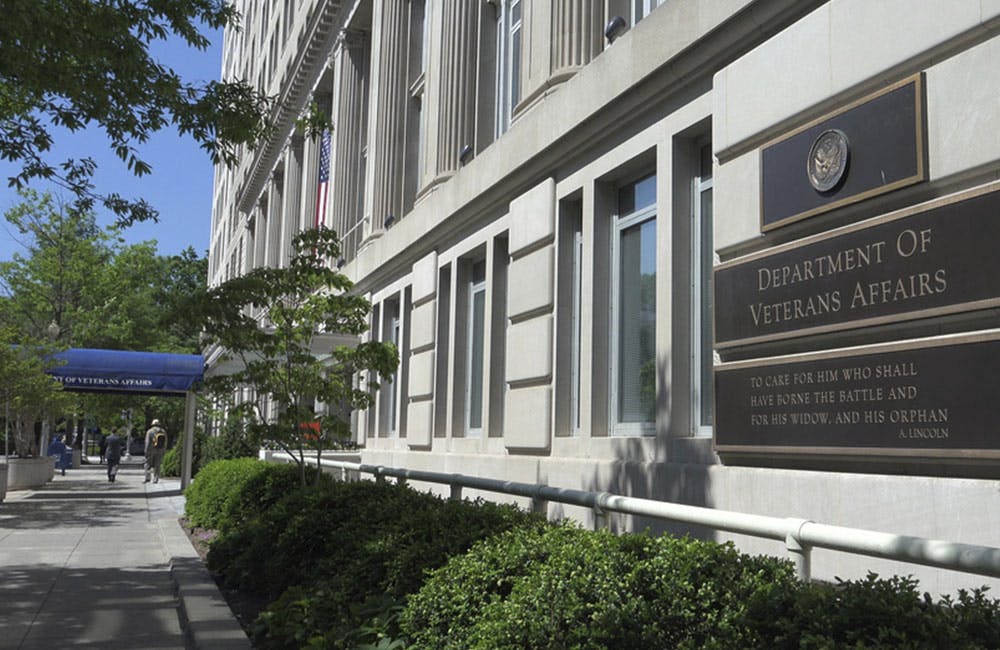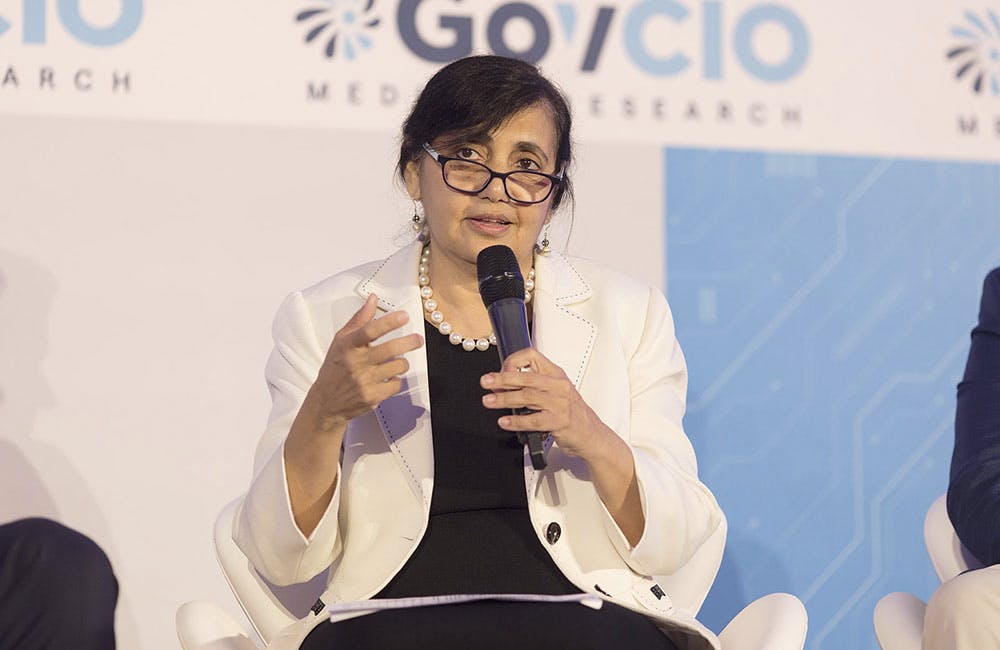DOD Deputy CIO’s Tech, Cyber Priorities for 2024
Leslie Beavers outlines how her office is enabling innovation for key efforts including zero trust, 5G connectivity, cloud and more.

Defense Department Principal Deputy CIO Leslie Beavers is honing in this year on four critical areas driving developments around cloud, cybersecurity, customer experience and wireless connectivity.
“Modernization and cybersecurity are really foundational to how we, as a nation, and as a Defense Department are getting after — modernizing and securing organization,” she told attendees at the Defense IT Summit Friday.
Beavers noted the importance of cybersecurity threats for not only the department, but also society.
“We as a nation are facing a threat that is unprecedented,” Beavers said with regard to ongoing threats from Chinese-state actors. “The threat isn’t just to the government. It’s not just to the military. It’s not just to Wall Street. … It’s a threat to each and every citizen and person living in the United States.”
Part of the department’s cybersecurity journey includes a move to zero trust architecture by 2027. The department is currently undergoing implementation plans submitted from the services. Moving forward with the plan is dependent on funding, she noted.
“We are committed to get there by 2027 because that’s not a department-set objective, that’s an adversary-response objective, so we can’t really have afford to have it slip,” she added.
Beavers also is thinking about the next phase of the Joint Warfighting Capability Cloud (JWCC) contract and how to deliver cloud services needed for combatant command missions.
“We’re trying to really get the right compute and capacity out into those more remote environments,” she said, citing developments in hybrid cloud.
Beavers’ office also recently took over 5G deployment efforts to deploy the wireless capability across military bases globally by 2028.
“We’ve got to prioritize getting a robust and resilient communications architecture that’s land based, space based, air based,” she said.
Her office also recently launched its new Chief Customer Experience Office to develop processes for capturing user feedback and implementing solutions with a human-centered design approach.
“I think of it from beyond just having more modern IT equipment. I think it from a functionality perspective, from a scalability perspective, from a sustainability perspective,” she added.
Overall, Beavers sees the office as the enabler for continued innovation throughout DOD.
“Innovative ideas — I see them come in from our allies and partners. … I see them come in from our warfighters,” she said. “I need to institutionalize innovation.”
This is a carousel with manually rotating slides. Use Next and Previous buttons to navigate or jump to a slide with the slide dots
-

Modernizing Critical Infrastructure in the Face of Global Threats
Officials are expanding the latest strategies in boosting defense infrastructure, including securing satellite communications, upgrading enterprise-wide technology, optimizing data management.
20m watch -

DOD Accelerates Software Modernization with Agile DevSecOps Push
The Pentagon's software implementation plan tackles cultural hurdles and integrates security early to deliver critical capabilities faster.
6m read -

VA's Platform One Powers Rapid Innovation to Bolster Digital Services
VA's Platform One accelerates software development timelines from weeks to hours, ultimately enhancing digital services for veterans.
5m read -

Doing More with Less is Muscle Memory for IRS, Former Deputy CIO Says
Darnita Trower discusses her experience, the legacy she’s left behind and how she pushed the IRS to modernize itself,
20m watch -

The Next AI Wave Requires Stronger Cyber Defenses, Data Management
IT officials warn of new vulnerabilities posed by AI as agencies continue to leverage the tech to boost operational efficiency.
5m read -

Federal CIOs Push for ROI-Focused Modernization to Advance Mission Goals
CIOs focus on return on investment, data governance and application modernization to drive mission outcomes as agencies adopt new tech tools.
4m read -

DOD Can No Longer Assume Superiority in Digital Warfare, Officials Warn
The DOD must make concerted efforts to address cyber vulnerabilities to maintain the tactical edge, military leaders said at HammerCon 2025.
4m read -

Marine Corps Operation StormBreaker Slashes Software Delivery Timelines by 17x
New program aims to deliver critical digital capabilities to warfighters at the "speed of relevance" by overhauling traditional processes.
4m read -

Tracking CIOs in Trump's Second Term
Stay informed on the latest shifts in federal technology leadership as new CIOs are appointed and President Trump's second term takes shape.
6m read -

IRS Makes Direct File Code Public as Lawmakers Debate Program’s Fate
The agency sees the Direct File source code as beneficial to government digital services despite what happens with it in proposed budgets.
5m read -

Inside Oak Ridge National Lab’s Pioneer Approach to AI
Energy Department’s Oak Ridge National Lab transforms AI vulnerabilities into strategic opportunities for national defense.
22m listen -

Modernization Strategies to Enable Energy Innovation
Lawrence Berkeley National Lab and Maximus experts explore the modernization strategies driving digital transformation and operational resilience within the energy sector.
33m watch
















